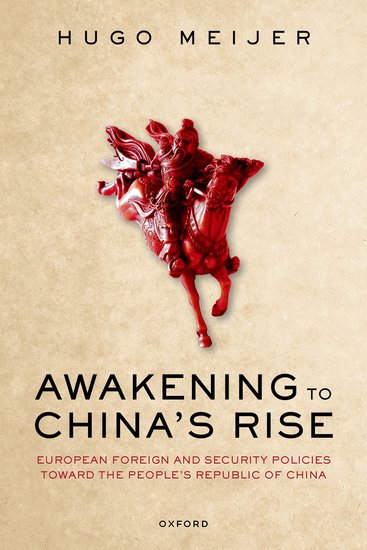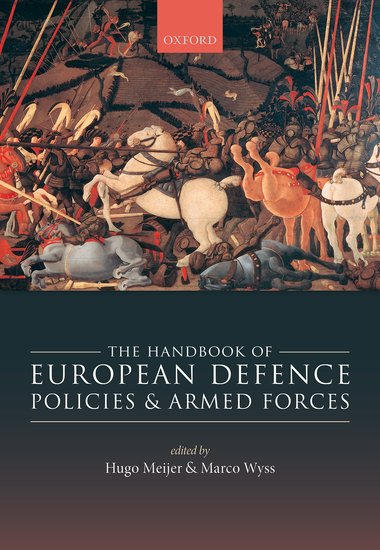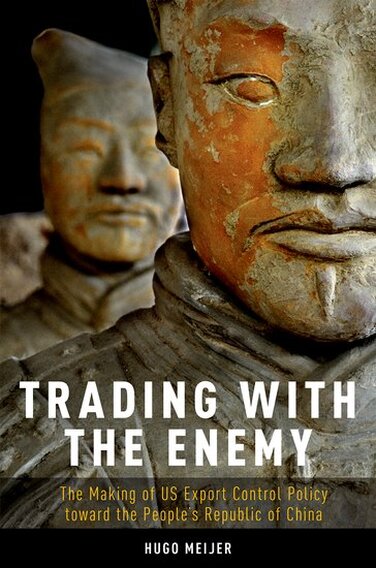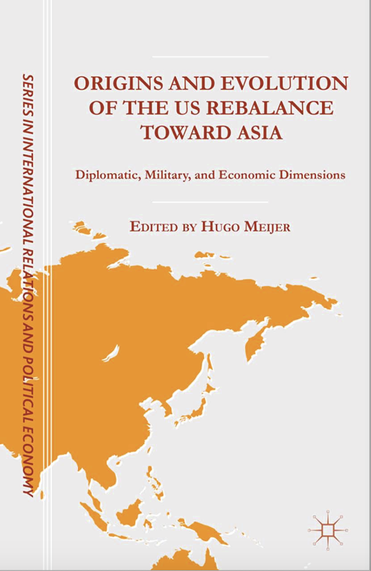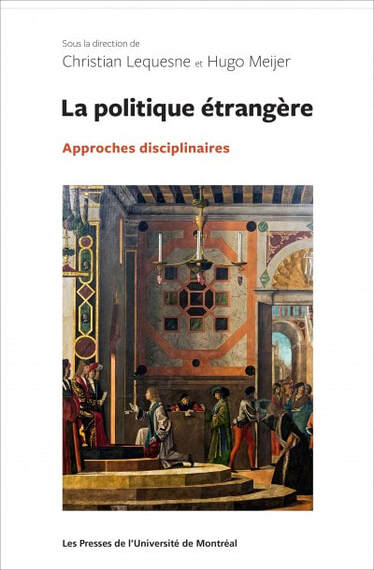Hugo Meijer
BOOKS
|
Two-volume book: Janus-faced: War and Peace in the Human Species (in preparation)
Janus-faced: War and Peace in the Human Species is a comprehensive two-volume exploration of the paradoxical human propensity for both lethal conflict and peaceful cooperation history. Drawing on a wide range of disciplines, including biology, primatology, anthropology, archaeology, genetics, neurosciences, demography, linguistics, and climatology, Janus-faced traces the origins and evolution of war and peace from the emergence of the human lineage 2.8 million years ago to the present day. Volume I, Origins, focuses on prehistory, examining the biological and cultural factors that have shaped our capacity for both intergroup conflict and peaceful cooperation. It shows that the propensity for intergroup conflict is an ancestral trait that we inherited from our chimpanzee-like ancestor, while the propensity for peaceful group interactions emerged in our human lineage after the divergence from the lineage of our primate cousins. In simpler terms, we inherited war from our chimpanzee-like ancestor, while peace is a uniquely human evolutionary innovation. Volume II, Statecraft, covers the period from the agricultural revolution to the modern era, analyzing how the emergence of states and civilizations transformed both of war and peaceful diplomatic practices. The conduct of peaceful cooperation and warfare became the domain of the state. Statecraft beckons you to embark on a captivating journey through the annals of world history, tracing the longue durée evolution and transformation of statecraft as the realm of war and peace shifted from nomadic hunter-gatherer groups to the state, from the ancient cradles of civilization to the globalized world of today. Together, these two volumes offer a deep and global history of the origins and evolution of war and peace, challenging simplified notions of ‘human nature’. They unravel the ways in which our Janus-faced propensity for both war and peace has shaped the course of world history, directly impacts our current prospects for peaceful cooperation or conflict, and, ultimately, will chart the future of our species on this planet. |
|
|
|
Awakening to China's Rise. European Foreign and Security Policies toward the People's Republic of China (Oxford University Press, 2022)
Awakening to China's Rise provides the most comprehensive analysis to date of how Europe's major powers have responded to the re-emergence of China as a great power in world politics since the end of the Cold War. To do so, it puts forward a unique cross-regional comparison of how the major European powers (France, Germany and the United Kingdom) have confronted Chinese assertiveness both in the Asia-Pacific and in Europe. Firstly, it analyses their response to China's increasingly muscular regional posture in the Asia-Pacific through the development of diplomatic and security initiatives with partners in the region. Secondly, it delineates how they have confronted China's inroads into Europe, looking at the measures that they have taken to tackle Chinese investments in, and supply of, technologies in strategic sectors such as critical national infrastructures, dual-use technologies, and in the digital domain, including Huawei's 5G networks. A longstanding assumption in the IR literature has been that European foreign policies toward the People's Republic of China have been driven by a 'naïve' and self-interested focus on the economic opportunities presented by such a vast market, overlooking security considerations. This book challenges such common belief through a detailed examination of the policies of France, Germany and the United Kingdom from 1989 to the present. Its central argument is that, whereas this assessment aptly characterized the first two post-Cold War decades, Beijing's growing assertiveness after 2009 caused the three major European powers to awaken to China's rise. In the 2010s, heightened threat perceptions of China, coupled with increasingly competitive bilateral economic relations with the PRC, have gradually and cumulatively caused the hardening of their policy goals which, in turn, translated into the formulation of new policy instruments to confront such a challenge. To substantiate this argument, the book relies on a large body of previously undisclosed primary sources, including: 223 interviews conducted with senior officials in Europe (Berlin, Brussels, London, Paris), in the United States (Washington DC), and in Asia (Beijing, Shanghai, New Delhi, Seoul); declassified archival documents from France, the UK and Germany; leaked US diplomatic cables; and new data on European naval deployments. |
|
The Handbook of European Defence Policies and Armed Forces (Oxford University Press, 2016), co-edited with Marco Wyss
The Handbook of European Defence Policies and Armed Forces provides the first comprehensive analysis of national security and defence policies, strategies, doctrines, capabilities, and military operations, as well as the alliances and partnerships of European armed forces in response to the security challenges Europe has faced since the end of the cold war. A truly cross-European comparison of the evolution of national defence policies and armed forces remains a notable blind spot in the existing literature. The Handbook of European Defence Policies and Armed Forces aims to fill this gap with fifty-one contributions on European defence and international security from around the world. For details, click here. Reviewed in International Affairs, the Journal of Common Market Studies and Defence Studies |
|
Trading with the Enemy: The Making of US Export Control Policy toward the People's Republic of China (Oxford University Press, 2016)
In light of the intertwining logics of military competition and economic interdependence at play in US-China relations, Trading with the Enemy examines how the United States has balanced its potentially conflicting national security and economic interests in its relationship with the People's Republic of China (PRC). To do so, the it investigates a strategically sensitive yet under-explored facet of US-China relations: the making of American export control policy on military-related technology transfers to China since 1979. Trading with the Enemy is the first monograph on this dimension of the US-China relationship in the post-Cold War. The book is based on 199 interviews, declassified documents, and diplomatic cables leaked by Wikileaks. For more details, click here. Reviewed in Foreign Affairs and The China Quarterly, and also available as Audiobook. |
|
Origins and Evolution of the US Rebalance toward Asia: Diplomatic, Military, and Economic Dimensions (ed) (Palgrave Macmillan, 2015)
This book provides a multifaceted analysis of the so-called US 'rebalance' (or 'pivot') toward the Asia Pacific. Most existing literature has focused almost exclusively on the military dimension of the US pivot toward Asia, depicting this as a US 'grand strategy' to contain a rising China. In contrast, this book brings to light the breadth and complexity of what is a diplomatic, military and economic repositioning of the United States toward (and within) the Asia Pacific region. The first section of the volume assesses the international and domestic drivers and policy objectives underlying the US rebalance toward Asia by analyzing the multiple diplomatic, military, and economic dimensions at play, as well as their mutual linkages. The second section examines regional reactions to this composite policy shift in Northeast Asia, Southeast Asia, Russia, and Europe. For more details, click here. |
|
La politique étrangère: approches disciplinaires [Foreign Policy: Disciplinary Approaches] (Montreal: Montreal University Press, 2018), co-edited with Christian Lequesne
Most existing handbooks on foreign policy analysis examine this field of study either thematically, geographically or theoretically (i.e. through different theories of foreign policy analysis). This book offers a original and innovative perspective on the study of foreign policy. Through a multidisciplinary approach, its ambition is to provide an overview of the main questions, theories, concepts and methods that cut cross the different disciplines of human and social sciences (e.g. political philosophy, history, sociology, political science, psychology, geopolitics) and that can enrich and refine the study of foreign policy. For more details, click here. |

